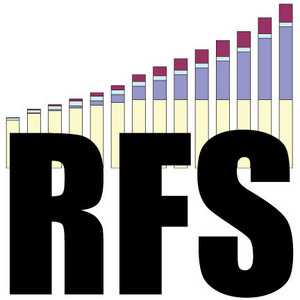Irwin, Good analyze implications of proposed RFS write-down

December 5, 2013
BY Susanne Retka Schill
Much hangs on the balance in the outcome of the U.S. EPA’s proposed rule to modify the renewable fuels standards (RFS). University of Illinois economists Scott Irwin and Darrel Good evaluate several scenarios in a FarmDocDaily post, “Potential Impact of Alternative RFS Outcomes for 2014 and 2015.”
The two run through the proposed rule which would write down the renewable mandate from 14.4 to 13 billion gallons. “This new implementation framework basically takes the E10 blend wall as a starting point and builds the mandated volumes up from this starting point,” the two economists write. “EPA rulemaking in previous years worked in essentially the opposite fashion by taking the total RFS volume in the statute as the starting point and then reducing the cellulosic sub-mandate as needed.”
While the significant write down of the cellulosic mandate is a continuation of similar actions in recent years, the other write downs have become very controversial. They summarized the other changes, comparing them to previous volumes: “The proposed biomass-based biodiesel volume of 1.28 billion gallons is equal to that of 2013 and above the minimum of one billion gallons required by the RFS. Interestingly, the EPA also proposed holding the biomass-based diesel mandate constant at 1.28 billion gallons in 2015. The proposed total advanced biofuel volume of 2.2 billion gallons is 0.55 billion gallons less than the 2013 requirement and 1.55 billion gallons less than the RFS for 2014. The write down of 1.55 billion gallons for the total advanced mandate is smaller than allowed based on the 1.733 billion gallon write down in the cellulosic requirement. The implied volume requirement for renewable fuels (difference between the total and the advanced) is 0.79 billion less than the 2013 requirement and 1.39 billion less than the RFS for 2014.”
Advertisement
The EPA is being challenged on its statutory authority to write down the total mandate, by more than the write down in the cellulosic mandate, “which effectively implies a write down in the mandate for corn-based ethanol.” The waiver provision in the RFS pertain to inadequate domestic supply, which the economists explain the EPA is arguing “encompasses not only the production of biofuels but also the ability to distribute, blend, dispense, and consume biofuels.”
The analysis goes on to trace through the likely implications with links to earlier articles and to a set of spreadsheets that show the assumptions, calculations and outcomes for the various compliance scenarios examined. If the proposed rule is adopted, they conclude the blend wall issues will be resolved and there will be little pressure to expand consumption of higher ethanol blends, prices for renewable identification numbers will drop to pre-2013 levels, ethanol imports from Brazil will decrease and they conclude, “the implications are generally market-neutral for corn.” The economists also look at the implications of a partial write down of only the advanced mandate.
Advertisement
Related Stories
President Trump on July 4 signed the “One Big Beautiful Bill Act.” The legislation extends and updates the 45Z credit and revives a tax credit benefiting small biodiesel producers but repeals several other bioenergy-related tax incentives.
CARB on June 27 announced amendments to the state’s LCFS regulations will take effect beginning on July 1. The amended regulations were approved by the agency in November 2024, but implementation was delayed due to regulatory clarity issues.
SAF Magazine and the Commercial Aviation Alternative Fuels Initiative announced the preliminary agenda for the North American SAF Conference and Expo, being held Sept. 22-24 at the Minneapolis Convention Center in Minneapolis, Minnesota.
International Sustainability & Carbon Certification has announced that Environment and Climate Change Canada has approved ISCC as a certification scheme in line with its sustainability criteria under its Clean Fuel Regulations.
Legislation introduced in the California Senate on June 23 aims to cap the price of Low Carbon Fuel Standard credits as part of a larger effort to overhaul the state’s fuel regulations and mitigate rising gas prices.
Upcoming Events









